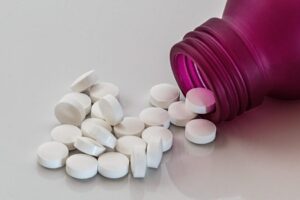Post-acute withdrawal syndrome (P.A.W.S.) is a constellation of symptoms, mostly of a psychological nature, but also characterized by physical symptoms, such as headaches, nausea, irritable bowels, menstrual irregularities and exacerbations of fibromyalgia, lasting sometimes up to two years and occurring after the acute withdrawal from drugs and/or alcohol.
It is not so much physical withdrawal as it is the onset or exacerbation of psychological difficulties: poor concentration, impaired multi-tasking, depression, sleep disturbance, anxiety, irritability and outbursts of rage and tearfulness. Anhedonia (the inability to feel pleasure) is also quite common. Derealization (the feeling that the external environment is not real) and depersonalization (the feeling that one’s self is not real) can also occur. Cravings to use or drink may last for months or recur after a few initial months of abstinence. Using dreams are also not uncommon.
In fact, the psychological symptoms of P.A.W.S. can be so significant that health professionals cannot diagnose Primary Major Depression or Primary Anxiety Disorder in the presence of P.A.W.S. One can only diagnose the former entities once P.A.W.S has either been ruled out, run its course or been successfully treated, usually after at least 6 to 12 months of continuous abstinence from alcohol or drugs.
It is often not recognized by health professionals, psychiatrists, insurance companies and society in general, although it is a real entity and can be detected pathologically and described in post-mortem brain biopsies.
It is one of the reasons addicts and alcoholics should not return to work too soon in early Recovery. P.A.W.S. seems to get worse with every relapse and this may have to do with cumulative neurological damage sustained with the recurrent use of drugs and alcohol.
It is during this period that extreme care must be taken to avoid a relapse. The brain is resetting itself. If relapse is prevented successfully, psychological improvement over time can be documented/substantiated by psychometric testing repeated at intervals of two to three months.
A few words on the management of this condition:
Psychological support is essential. Twelve Step meetings, regular step work with a sponsor, psychological support through a social worker, psychologist or psychiatrist are all important in this crucial phase of Recovery. Alternative coping strategies (to alcohol or drug use) need to be worked out and implemented.
P.A.W.S. is proof that the treatment of substance dependence only really BEGINS with abstinence. True Recovery requires personal responsibility, honesty, a structured daily regimen and a gradually acquired maturity, all of which can only be obtained through social connections and the avoidance of isolation.
A full spiritual life in Recovery is what awaits the recovering addict/alcoholic if she/he works the program to get past the challenging, but not insurmountable, symptoms of post-acute withdrawal syndrome.




Leave a Reply